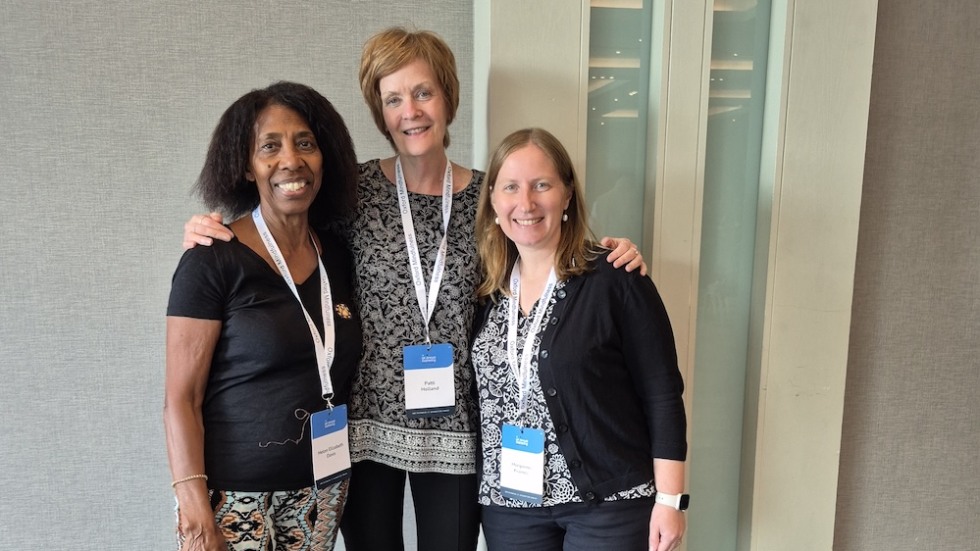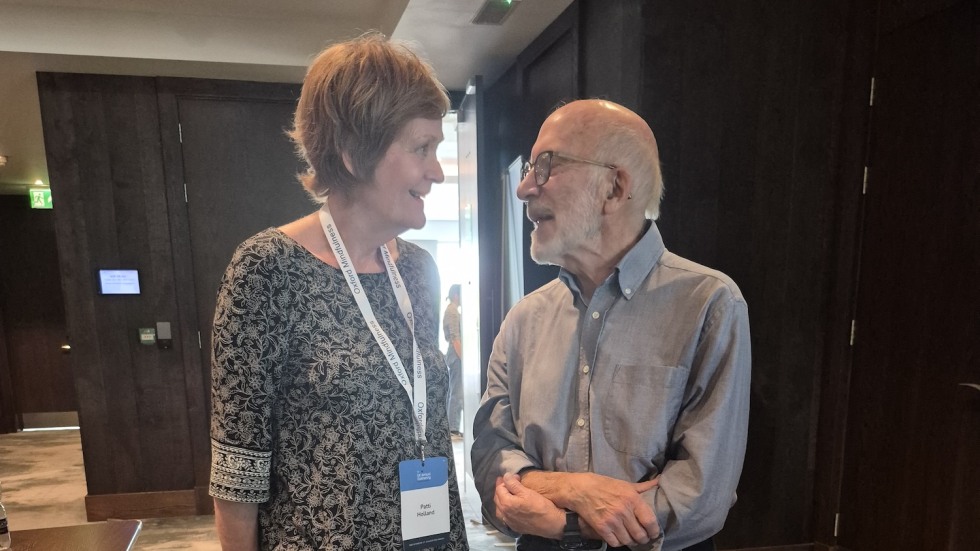After months of anticipation, I arrived in the picturesque town of Marlow in England, along the Thames and framed by rolling hills. But what truly brought me here wasn’t the scenery — it was the gathering of minds and hearts for the Oxford Mindfulness celebration of Mindfulness-Based Cognitive Therapy (MBCT): MBCT 30 Years On.
And yes — the first night in England called for the classic: fish and chips.
A Homecoming
For me, this conference was more than professional development — it was a homecoming.
I’ve had the privilege of training with Zindel Segal, one of the MBCT’s three founders, whose consultation supported the development of the Certificate in MBCT Teaching program at Brown. Today, he and I co-teach the MBCT Teacher Advancement Intensive, preparing health care, psychology and counseling professionals to bring this practice to those they serve.
Mark Williams, another co-founder, has also shared his expertise at Brown. I’ve had the joy of teaching Finding Peace in a Frantic World, a program he created with Danny Penman and rooted in MBCT principles. Running into Williams after dinner one evening was a reminder of how connected and supportive this community truly is.
Meeting John Teasdale, the third co-founder, completed the circle. Connecting with all three visionaries who brought MBCT to life felt both humbling and inspiring.
The Wisdom of Beginning With Practice
Jet-lagged from my overnight flight, I was grateful the conference began with a full day of practice. Under the skillful and compassionate guidance of Antonia Sumbundu and Williams, hundreds of us settled into a shared rhythm of mindful awareness.
Sumbundu offered a powerful reminder:
“With mindfulness, we pay attention to our direct experience in the moment. In doing this, we can develop understanding. With this understanding comes greater intimacy with ourselves and our life. And with this intimacy can come love — for ourselves, others, our communities and our shared world.”
Power in Collective Practice
There was something profoundly moving about meditating, doing a body scan and walking mindfully along the Thames with practitioners from more than 25 countries.
As we tuned in to moment-to-moment awareness together, boundaries between self and others seemed to soften. We cultivated awareness of the feeling tone of our experiences, exploring those crucial tipping points where our moods could either carry us away or become doorways to greater freedom.
Here we were — teachers, therapists, researchers and practitioners alike — engaging personally with the very practices we guide others through. It felt like coming full circle, reminding us why this work matters so deeply.
Healing in Troubled Times
What struck me most was the timing of this gathering. In a world fractured by divisiveness, stress and seemingly endless concerns, sitting in collective mindfulness with people from across the globe felt genuinely healing.
Despite differences in language, culture and background, we were united by a common intention: to support mental health and well-being for all.
The day of practice wasn’t just a prelude to the conference — it was MBCT in action. When we learn to meet experience with awareness and compassion, we don't just transform our own relationship to difficulty; we create ripples of healing that extend far beyond ourselves.
The Path Forward
As I write this evening, still absorbing the simplicity and depth of the day’s practice, I feel immense anticipation for what the next few days will bring.
This gathering is more than an academic conference. It is a celebration of three decades of quiet revolution — the steady work of bringing ancient wisdom into modern mental health care.
Tomorrow will focus on research, innovations and the future of MBCT. But today reminded me that before we can effectively teach mindfulness, we must continue to embody it ourselves. Sometimes the deepest learning happens not in lecture halls but in the shared silence of practice.
Here’s to 30 years of MBCT — and to the countless lives touched by this gentle, transformative approach.








